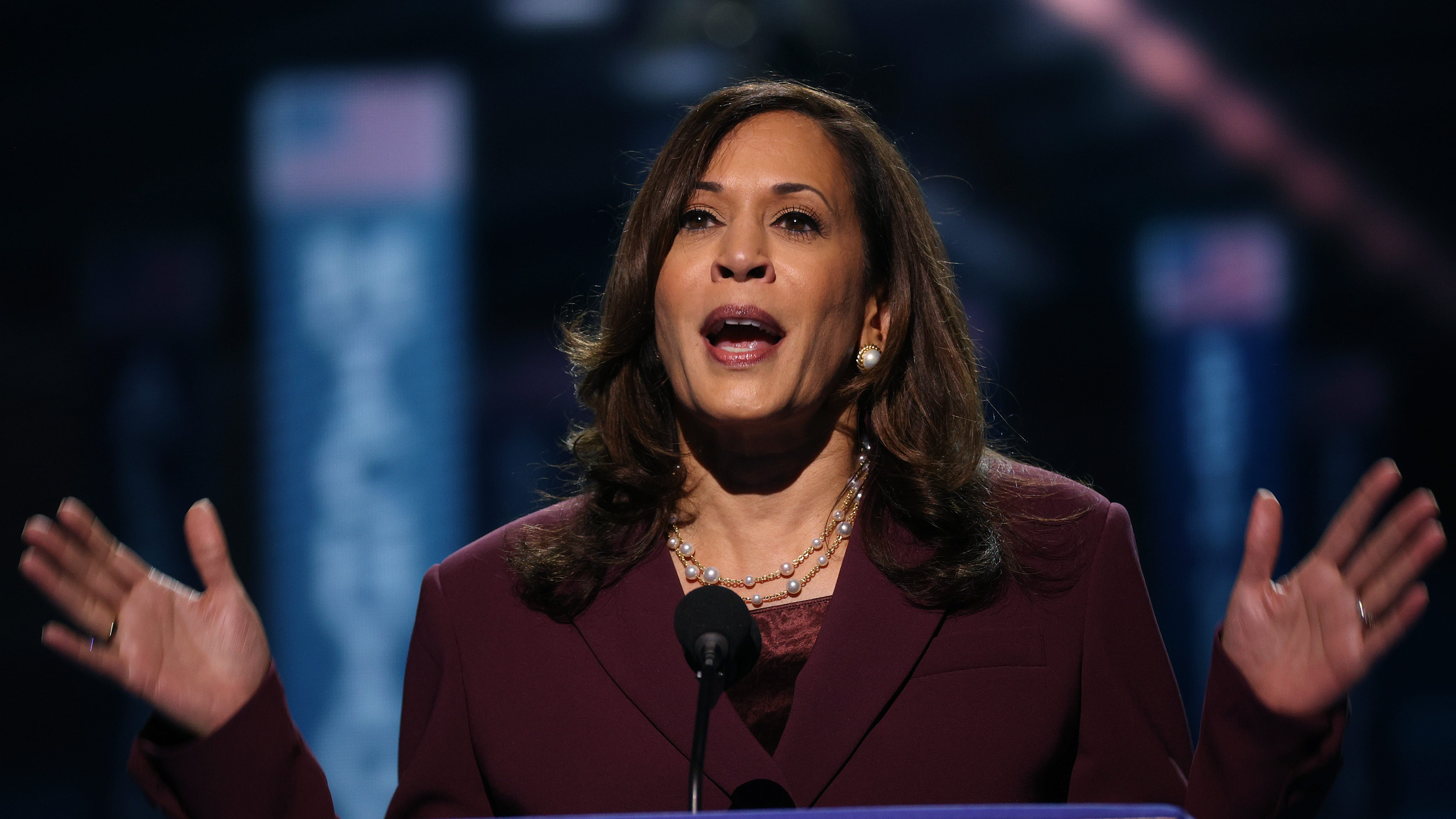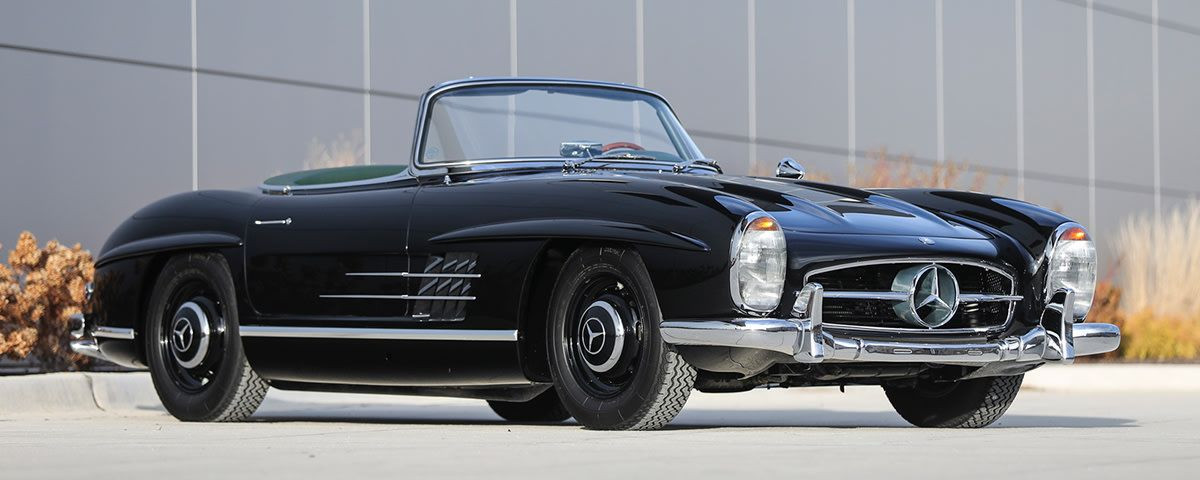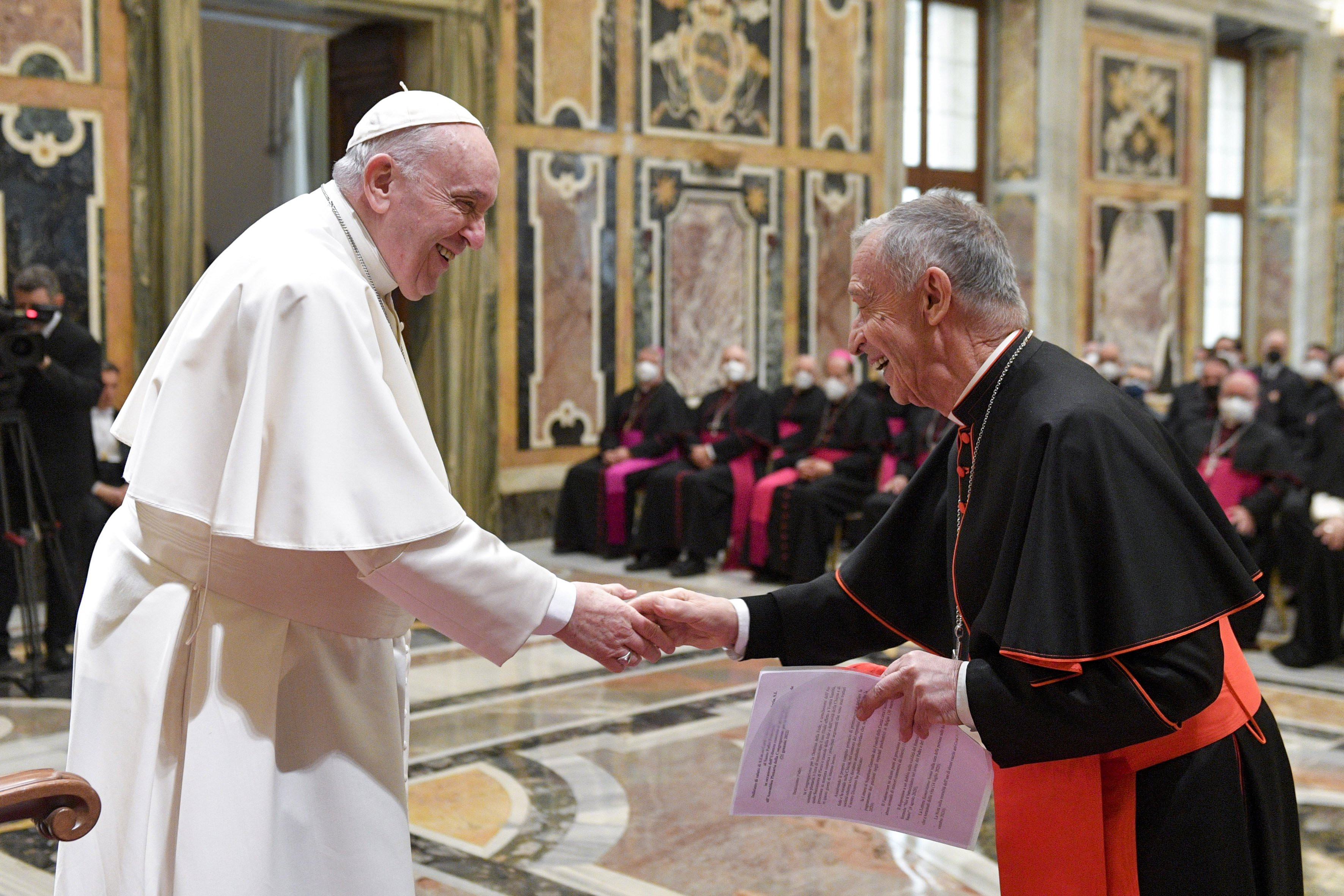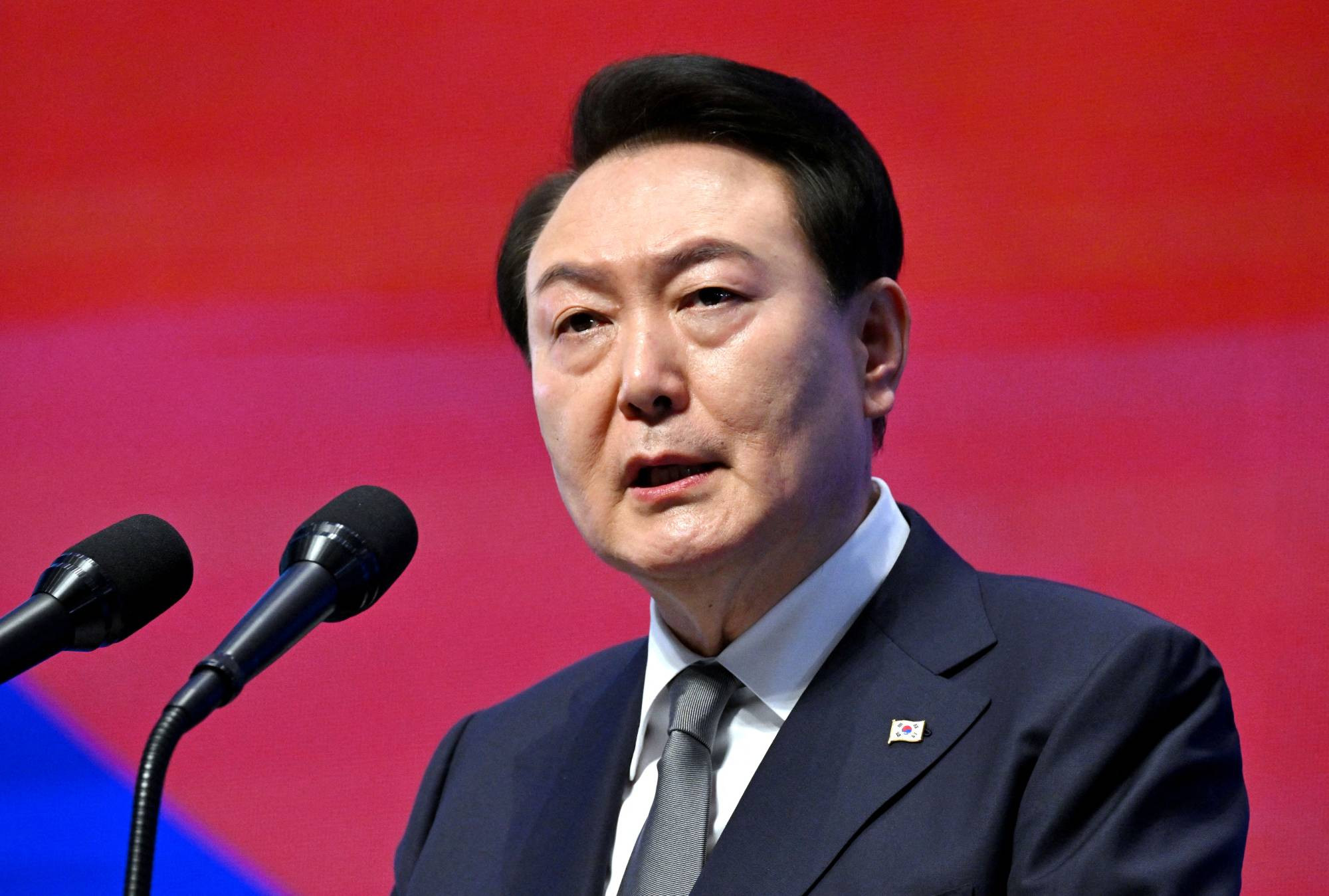Vice President Harris, the Democratic presidential nominee, arrived onstage to speak on the fourth and last day of the Democratic National Convention in Chicago on Thursday. She delivered a speech which hit the key notes her campaign wanted - but had only rare moments of soaring rhetoric and broke little new ground.
The ground-breaking was in the nature of the nominee herself - the first woman of colour to become a major party's presidential nominee.
This was, by far, the most important speech of Harris’ political career, and it was in front of the biggest audience she’s ever spoken to — not the crowd of thousands in person in the audience, but the crowd of millions watching at home and those taking it in in the coming days. She had to connect with those who are either undecided about her or those on her side but not sold on voting. She tried to do that by inverting what former President Donald Trump does in othering certain groups of people. She tried to make her story — one of a child of immigrants from India and Jamaica — a typical and relatable American one. She’s the child of divorce, brought up working class, raised by a mother who dreamed big and taught her daughters to dream big, but also stressed critical all-American values — work hard, don’t complain and “do something,” a nice rhetorical coda to former first lady Michelle Obama’s speech two nights ago.
Harris and Democrats flipped the script in this convention on a lot of GOP attacks against them. They appealed to “common sense,” a small-c conservative value, reclaimed who and what qualifies as blue collar, stood up for veterans and redefined “freedom.” Instead of a “radical” California liberal, Harris painted herself as a regular, blue-collar kid, who understands the needs of people and the value of hard work and discipline.
Democrats, instead of coming across as unpatriotic and unhappy with America, enthusiastically spoke of campaigning with “joy” and flooded the United Center in Chicago with flags. They had Republicans like former Rep. Adam Kinzinger, R-Ill., attest to their patriotism and decency, and they brought veterans to the forefront on the stage and in speeches.
Overall, Harris sounded in control, shared her values, told the country where she comes from and where she wants to take it, while also contrasting herself with Trump.
One of the most important jobs of a candidate in a presidential acceptance speech is to allow people to actually visualize him or her as president. That’s especially true for someone who hasn’t had much a lot of time in front of the voters. Agree or not with the direction Harris wants to take the country, she did that Thursday night. She looked the part, stuck to the script, didn’t ramble or meander, and mostly stuck to the facts. She laid out a vision for the future of the country, one that stands in stark contrast to what Trump wants to do.
If, with her discipline, Harris was trying to reassure Americans that she can handle the presidency, it also had to give Democrats confidence in the kind of candidate she will be for the remaining 74 days.
Many Americans know who Ms Harris is, but not many know what she believes in or details of her background. First and foremost, her convention speech set out to change that. She recounted her mother’s journey as an immigrant from India. She spoke about how her parents met – and how they ultimately divorced. She talked about her childhood upbringing in a working-class neighbourhood in Oakland, California.
She also spoke of why she chose to become a lawyer – and a prosecutor. She drew a line from her early days in the courtroom to her public services as a politician.
Harris’s speech included calls for unity and a pathway beyond the “bitterness, cynicism and divisive battles” of modern American politics. She said that the US had a “precious, fleeting” opportunity to “chart a new path forward”. But that chart had few details. Vague calls for unity and a path beyond partisanship are rhetoric many presidential hopefuls have used in the past.
When Ms Harris did turn to policy details, she spoke in generalities. She said she will be focused on lowering the costs of “everyday needs” – including healthcare, housing and groceries. She specifically called out abortion rights – and framed it as a means of preserving freedom, which has been a recurring theme at this Democratic convention.
Harris, in her speech, styled herself as a centre-left moderate, putting little daylight between her policies and those of her boss, the man she hopes to replace, Joe Biden.
As pro-Palestinian protesters marched outside the convention, Ms Harris devoted particular attention in the foreign-policy section of her speech to the Gaza war. Here, yet again, there was little difference between her rhetoric and views and those of Mr Biden – and she linked herself to the president several times. She also pledged to ensure that Israel always has the ability to defend itself and took particular note of the brutality of the 7 October Hamas attack. For a moment, it sounded like some in the crowd would jeer, but Ms Harris quickly moved on to the plight of Palestinians, saying that the scale of their suffering was “heartbreaking”.
Harris has provided Democrats with enthusiasm they didn’t have before President Biden dropped out, and part of that comes from the change Harris brings. Another challenge for her Thursday night was to show she could grab firm hold of the change mantle. Change, after all, is one of the strongest motivators in politics. Harris showed not only is she change from Trump, someone who has now been running or serving as president for almost a decade, but also from Biden. That was evident by the very different speeches they delivered this week. Biden’s was darker and more focused on defending democracy (as well as his achievements in office). In fact, Biden mentioned democracy 10 times in his speech. Harris mentioned it, but only twice.
Harris entered the convention tied, or perhaps ever-so-slightly ahead. But she faces serious challenges. Many undecided voters know little about her, or worry she is too liberal. Every word of the speech was aimed directly at resolving those concerns.
Harris told a story of herself in her biography as the striving child of strict immigrant parents growing up in a working-class neighborhood. She explained her inspiration to become a prosecutor as a desire to protect, growing from seeing a friend confide to her that she was being sexually abused at home. Then she recounted her history as a prosecutor, where she fought big banks and the “cartels who traffic in drugs and guns and human beings, who threaten the security of our border and the safety of our communities.”
Harris explicitly promised to represent Republicans as well as Democrats. “I know there are people of various political views watching tonight,” she said, “And I want you to know: I promise to be a President for all Americans.” That may seem like easy rhetoric, but it stands in contrast to Trump’s naked partisanship as president, routinely and openly favoring politicians and areas that supported him.
More significantly, Harris relentlessly depicted herself as the sane, moderate candidate in the race. She labeled herself a candidate “who is realistic, practical, and has common sense.” Her issue focus reflected that idea. Harris emphasized popular elements of her program: protecting abortion rights and promising to sign into law the border bill negotiated with “conservative Republicans.”
Her attacks on Trump were well targeted. She cited his plans to raises taxes on all Americans through a tariff and to eliminate the Department of Education — two of Trump’s most politically toxic notions.
Harris’s case on foreign affairs was designed to authenticate her as a commander-in-chief for voters who might not automatically envision a woman in that role. (Several segments preceding the speech, featuring veterans and national security specialists like Leon Panetta, advanced the same goal.)
Harris’s delivery enhanced the message. She was forceful and confident. She sounded like a nominee who believes she is going to win and who is designing a campaign focused relentlessly on that goal. The floundering incipient candidate of 2019, trying desperately to please progressive activists with social-justice lingo, could not be a more distant memory now. Harris is in this to win this. And I believe she will.
And she did it all without dwelling on her gender, race or ethnic identity.
It was a strong speech but not particularly lyrical: She started slowly and built the drama, giving Americans plenty of details to get a better picture of her. But none of the lines were especially memorable. She made her case like a lawyer, not a poet. For weeks she had been pitching herself as a “joyful warrior,” as her husband, Doug Emhoff, put it — the bright, inclusive, graceful antidote to Trump’s dark, repudiating gracelessness. On Thursday night, she was all those things but she was scorching, too, calling out Trump for trying to steal the 2020 election and then sending “an armed mob to the United States Capitol” to achieve his ugly ends, saying he “fanned the flames.”
The week was well produced; the campaign pulled off a high-wire act seamlessly marrying the convention with a packed Harris-Walz rally in Milwaukee at the very arena where the Republican National Convention was held; and it had big stars. But most importantly, it showcased and introduced Harris in the best light possible. And all of that has Democrats over the moon.
Still, for what a solid rollout Harris has had and all her momentum, this remains a very close race. That’s why several Democrats this week urged the crowd against irrational exuberance and reminded onlookers of the work that still needs to be done. “Yes, Kamala and Tim are doing great now,” Michelle Obama said. “We’re loving it. They are packing arenas across the country. Folks are energized. We are feeling good. But remember, there are still so many people who are desperate for a different outcome.”
There is no doubt about that.

















